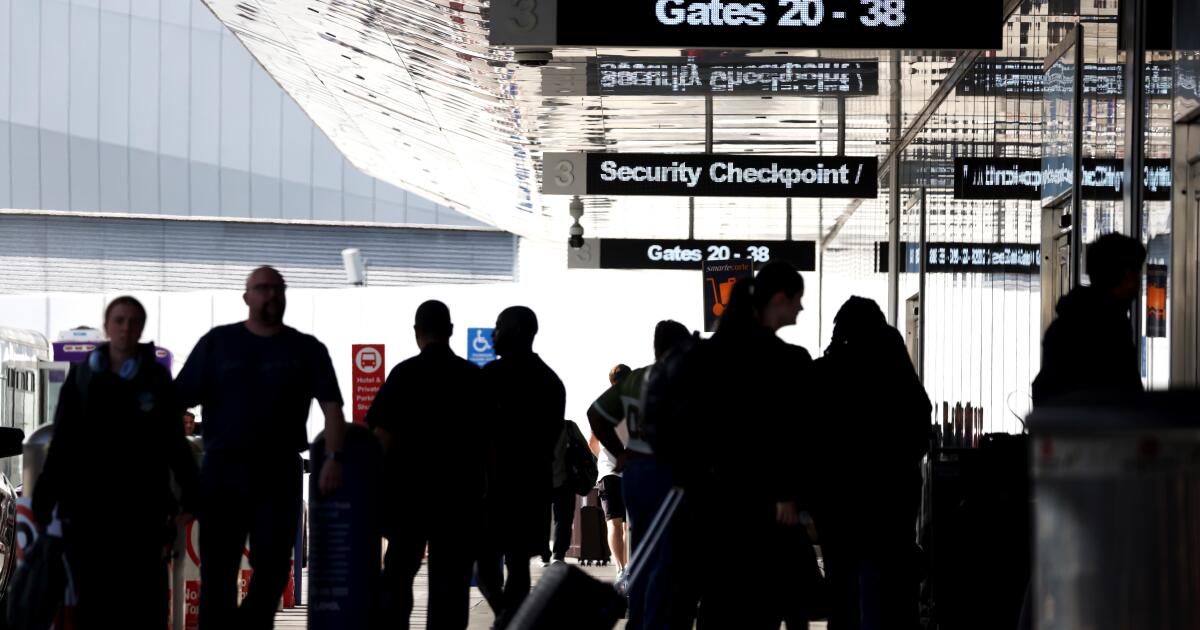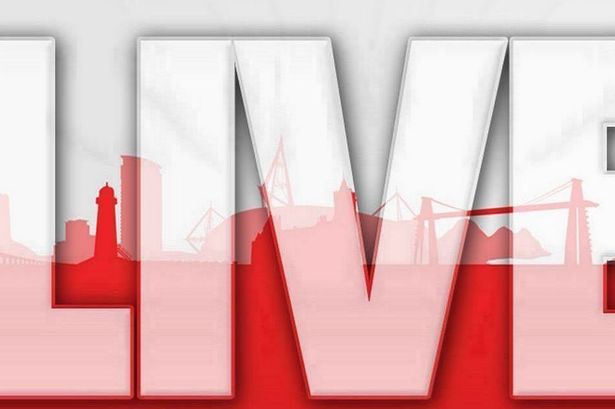Copyright Los Angeles Times

With the holiday travel season around the corner, travelers are bracing for possible flight delays and cancellations as the Federal Aviation Administration plans to cut commercial air traffic by 10% at 40 airports starting Friday. The unusual conditions are the result of the government shutdown, which is entering its second straight month. The FAA is cutting air traffic to relieve pressure on air traffic controllers who are working without pay, with many calling in sick, leading to staffing shortages in the airport control towers. Five airports in California will be targeted for cuts, including the Los Angeles International Airport, Ontario International Airport, San Diego International Airport, Oakland San Francisco Bay Airport and San Francisco International Airport. How could cuts impact LAX travelers? Aviation analytics firm Cirium estimates, as many as 1,800 flights a day across the country could be canceled. About 72 flights a day could be cut at Los Angeles International Airport alone, which could affect as many as 12,371 passengers a day. Which flights will be impacted may depend on the routes. Following the FAA’s cutback announcement, United said it’s long-haul international and hub-to-hub flying will not be impacted by the reductions. Hub-to-hub flights include those that go through: Los Angeles International Airport San Francisco International Airport O’Hare International Airport Denver International Airport Houston/George Bush Intercontinental Airport Newark Liberty International Airport Washington Dulles International Airport Antonio B. Won Pat International Airport (Guam) Similarly, American Airlines said on X that its “long-haul international travel will remain as scheduled.” I’m looking to book a flight soon, any tips? When searching for available flights, it’s best to find one that’s non-stop, said John E. DiScala, creator of travel tips and deals website Johnny Jet. The lack of stops or layovers doesn’t guarantee that your flight won’t be delayed or canceled but it does reduce the chances of either happening. Try to avoid routes that rely on smaller planes that head to regional airports because if the FAA “is going to cut flights they’re going to cut the smaller ones,” said Tyler Hosford, security director of at risk mitigation company International SOS. When you consider travel times, look for morning departures because the plane and the crew are typically already at the airport, DiScala said. Afternoon and evening departures increase your risk for crew shortages and plane delays. Also, when a morning flight is canceled, there is more time to reschedule the flight or figure out your options, Hosford said. My flight is booked, how can I prepare for a possible cancellation? Travel experts say, now more than ever, you should always be prepared for a flight delay or cancellation by staying up-to-date on your flight status. You can do so by downloading your airline’s app and signing up for alerts as emails or text messages. Some frequent fliers go the extra mile by paying weekly or monthly for apps like Flighty that provide advance information of weather-related delays, arrival forecast, 24-hour live tracking of your plane, and other push alerts, DiScala said. Another commonly paid-for app is Trip It Pro, which, for $50 a year, provides users with a seat tracker, flight status updates, alternative flights and any alerts of potential trip disruptions. Another resource DiScala uses when flying is Expert Flyer which provides real-time upgrade and seat availability on a flight. The service costs $5 to $10 monthly (there is also an annual fee option) depending on the number of alerts users sign up for and their searches. If you booked a regional flight and see flight cancellations for other days on this route, Hosford said take this as a sign that your flight could be canceled too. He advises you immediately start looking at your options. “If you really need to be somewhere it’s not a bad idea to get a backup ticket on a different airline that is a few hours or a day later,” DiScala said. If you decided to book a backup flight, he said, you should do it with your frequent flier miles so you can more easily cancel. Don’t book your backup flight as a “basic economy” ticket or you could get stuck with travel credit instead of a refund. Lastly, if you can’t get a non-stop flight, pack a few essentials (such as medications, a change of clothes, and travel documents) in your carry-on bag in the event your luggage is delayed during a layover, Hosford said. My flight was canceled, what can I do? Before the travel anxiety kicks in, know that there are steps you can take to possibly secure a seat on another flight. Get in line for the airline’s customer service desk. While you’re in line, check the app for any flight options. Maintain your spot in line and try to call the airline’s customer service hot line or chat with a travel agent through the airline app. Pro-tip: If the U.S. customer service phone line has an extended wait-time, you can try to call the airline’s international hot line. Fees may apply for the international call depending on your cell service provider; however, the wait times will be much shorter. If you find an alternate flight that’s close enough to your destination, Hosford said, seize it. “But keep looking because flights will be changing, inventory and availability will be an ever flowing situation,” he said. Due to the circumstances, several airlines, including United, have issued travel waivers, which means you can cancel your tickets 6 days prior to your flight — even if the flight is operating — and the change fee will be waived. You can even cancel 6 days after the original travel date if you missed the flight and tried to rebook it later. United’s waiver is for flights booked between Nov. 6 and 13. Hosford said you should take advantage of the waiver if you need to cancel, find a place holder flight, and continue looking for a flight that really meets your needs. Can I get a refund on my canceled flight due to the government shutdown? Rest assured, airlines are waiving cancellation fees, Hosford said. Some carriers also provide other support services if your travel has been affected. Hosford and DiScala said your go-to resource is the U.S. Department of Transportation’s updated online list of what airline carriers can or must do if your flight is significantly delayed or canceled. Some of the listed information includes whether the airline will rebook your flight at no additional cost or which carriers will provide complimentary ground transportation to and from a hotel for a passenger affected by overnight cancellation. What can my flight insurance do if my flight is canceled? If possible, book a flight with a credit card that has trip delay insurance, so if there’s a delay over a significant number of hours, you can get up to $600 for things like food and a hotel booking, Hosford said. If you have travel insurance, call your provider and check whether a flight cancellation due to the government shut down will cover the costs of the lost flight. The “cancel for any reason” coverage is the “best option for flexibility,” usually reimbursing between 50% and 75% of prepaid, nonrefundable trip costs if policy-holders cancel at least 48 hours in advance, Suzanne Morrow, CEO of InsureMyTrip told USA Today.



